Deniz Taşımacılığı
Sea Freight Forwarder in China
Deniz taşımacılığı operasyonlarında 20 yılı aşkın deneyim, küresel olarak her uzak limana en ucuz nakliye oranıyla ulaşabilir.
China Sea Freight Services
Choosing Mbmlog for your sea freight needs in China means you benefit from competitive shipping rates and reliable space availability, ensuring your cargo moves smoothly. Our lower-than-market LCL destination charges can save you money, while our fair local fees under FOB terms eliminate any unexpected costs. With our free warehouse services, you can reduce storage expenses, and our container loading supervision across China guarantees your shipment is handled with care. You can also receive real-time loading photos, giving you peace of mind. Whether it’s out-of-gauge shipments or regular cargo, our door-to-door service simplifies your logistics, making the entire process hassle-free. Contact us today and start saving on your shipping costs with Mbmlog.
What is Our Advantage of Sea Freight Shipping?
- Competitive ocean freight rates with reliable space availability
- Our destination charges for LCL are lower than the market rate
- We offer fair local fees to shippers under FOB terms, ensuring no complaints.
- Free warehouse services included.
- Receive loading photos anytime you need them.
- Container loading supervision available in any city across China.
- Extensive experience in handling out-of-gauge (OOG) shipments.
- Comprehensive door-to-door service."
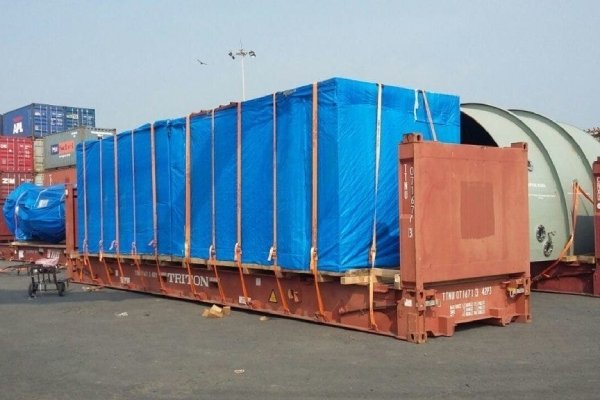
OOG (Out of Guage) Sea Freight
Handle oversized or irregularly shaped cargo with ease. Our expertise in OOG shipping ensures safe, reliable transport for your specialized freight, no matter the size or shape.
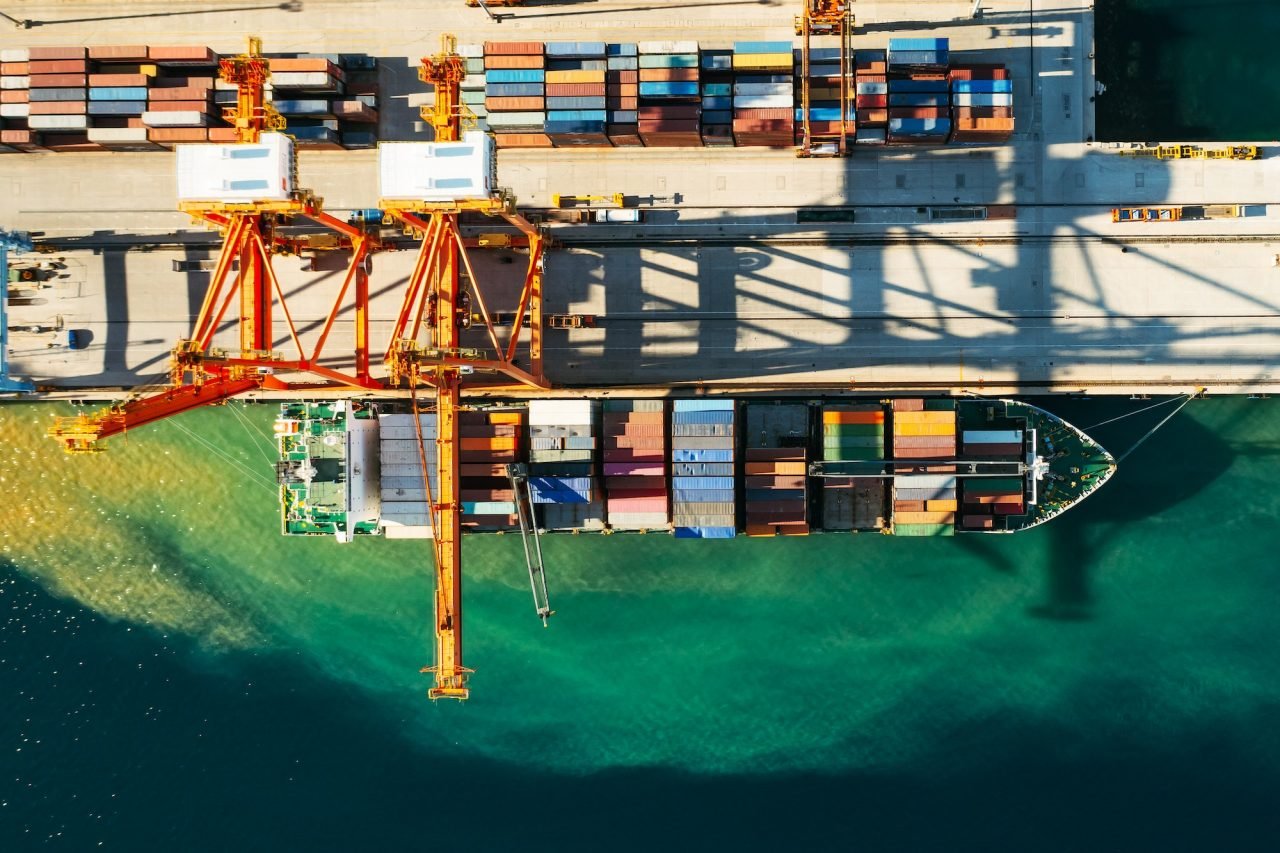
FCL Shipping
Ensure your entire container is handled with care. Our FCL shipping offers competitive rates, reliable space, and seamless door-to-door service, optimizing your logistics and saving you money.
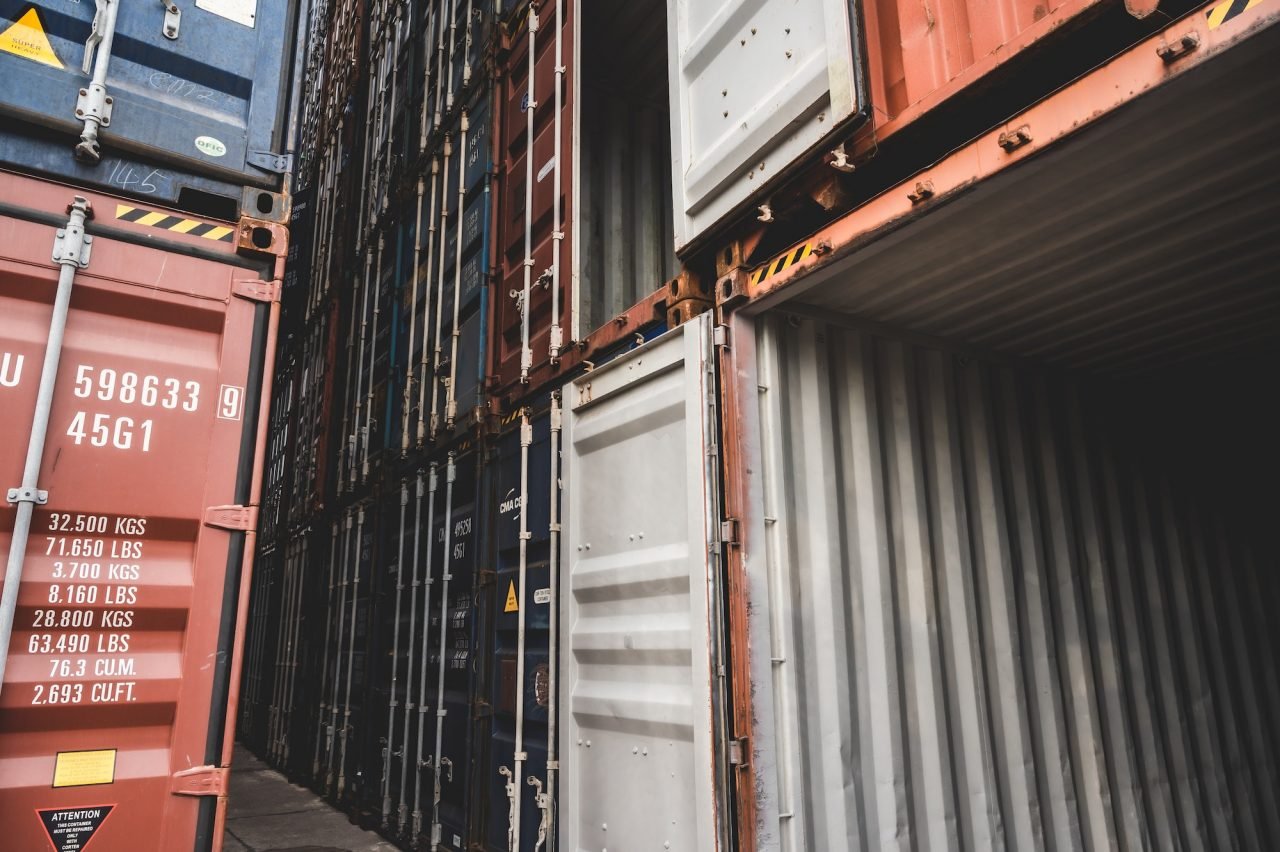
LCL Shipping
Save on costs by sharing container space with others. Our LCL service offers lower destination charges, free warehousing, and real-time updates, ensuring efficient, cost-effective shipping.
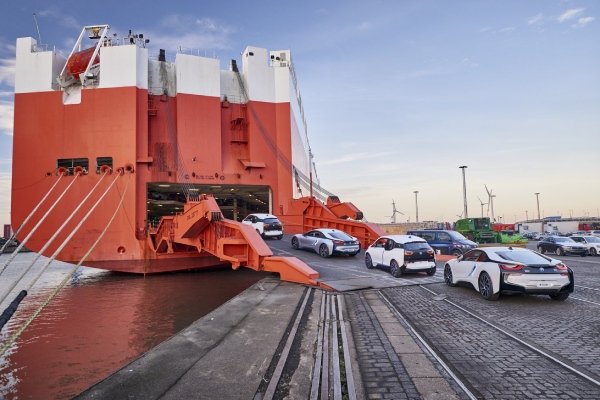
Roll-On Roll-Off Sea Freight Shipping from China
Simplify the transport of vehicles and wheeled cargo. Our Roll-On Roll-Off service offers secure, hassle-free shipping, ensuring your cargo is safely delivered, ready to roll.
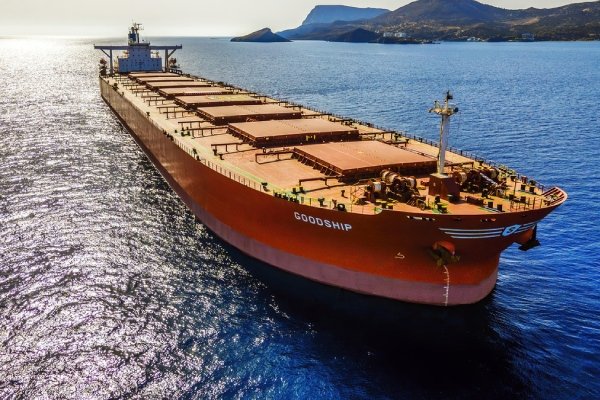
BULK - Cargo Ship Sea Freight Shipping from China
Efficiently transport large quantities of goods. Our bulk cargo services provide competitive rates, reliable space, and full handling support, ensuring your bulk shipments arrive on time and within budget.
Other Related Services
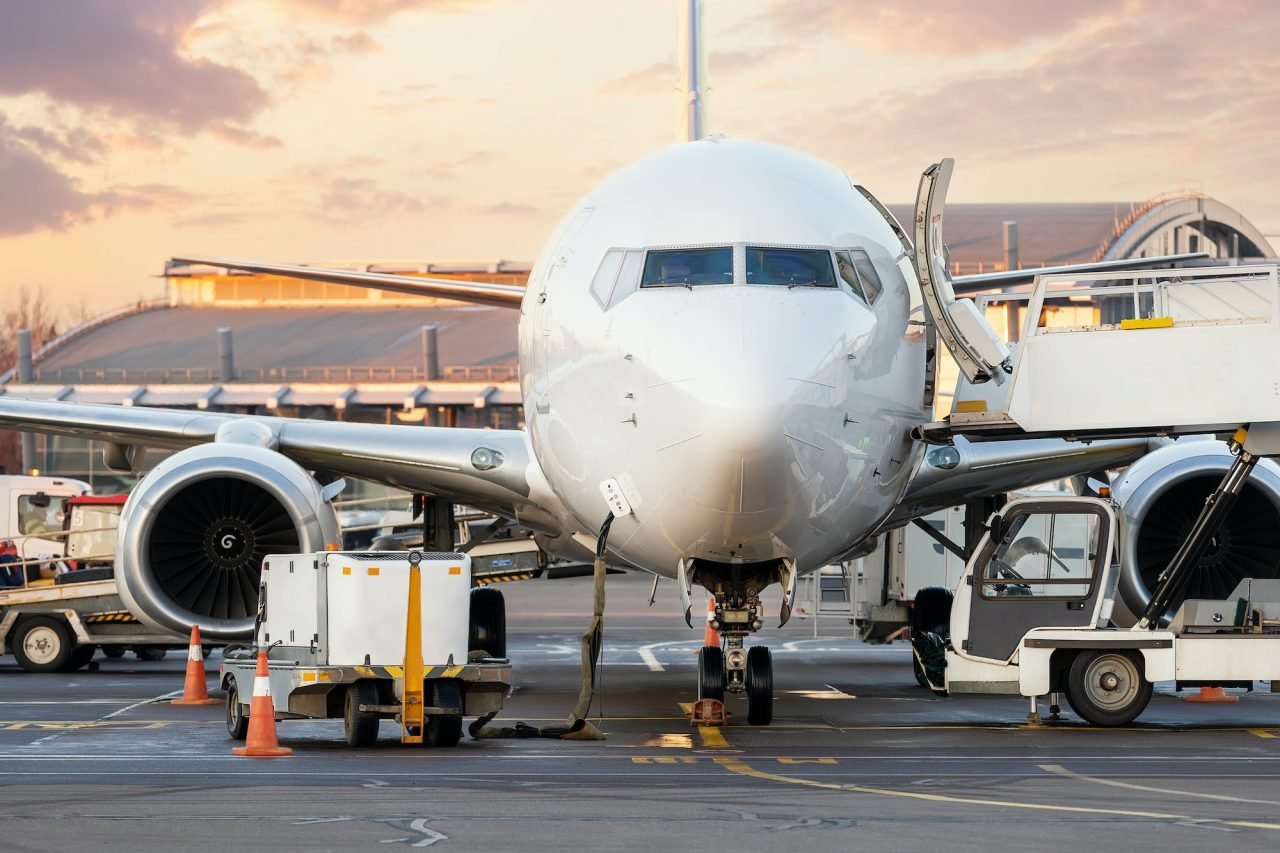
Hava Taşımacılığı

Demiryolu Taşımacılığı
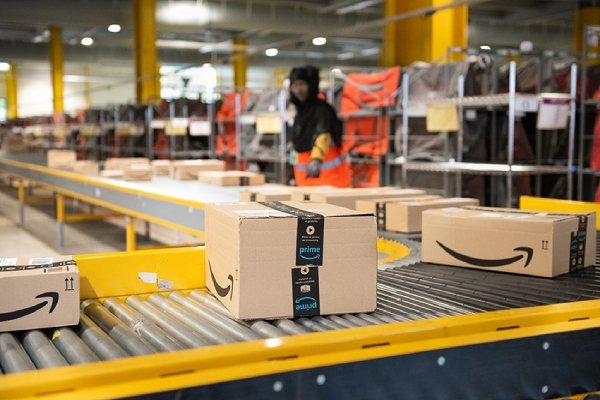
Amazon FBA Nakliye
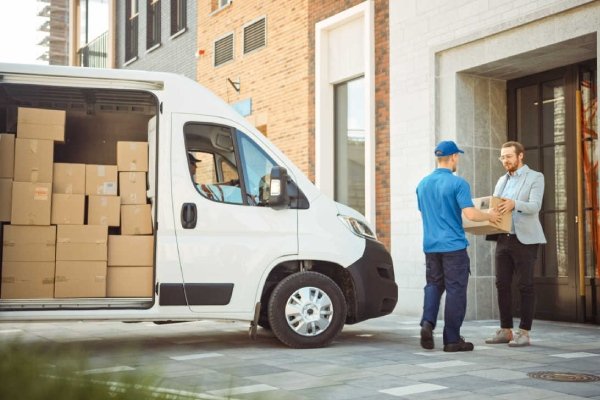
Kapıdan Kapıya Sevkiyat
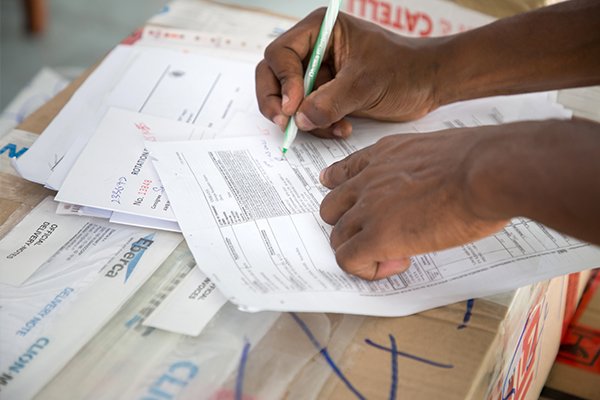
Özel Gümrükleme

Tehlikeli Mallar

Teslim Alma ve Teslimat
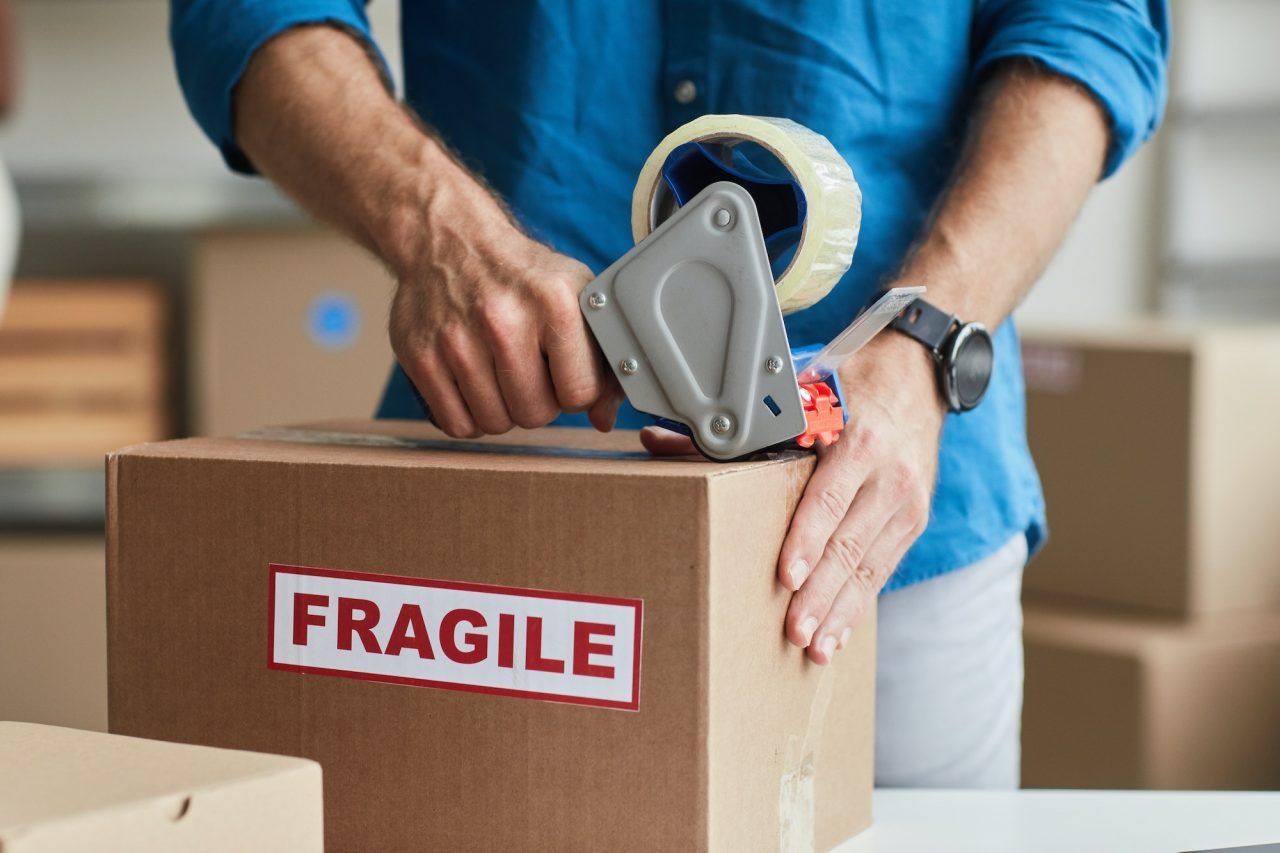
Çin Broker
Neden MBM'yi Seçmelisiniz?
Sorunsuz taşınmanın avantajlarını yaşayın
mbmlog'u seçerek rekabetçi fiyatlar, güvenilir ve zamanında teslimatlar ve 7/24 uzman desteği elde edersiniz. Lojistiğinizin verimli, uygun maliyetli ve endişesiz olmasını sağlamak için 20 yıllık deneyimimizden, sorunsuz gümrük işlemlerimizden ve ücretsiz depo depolamamızdan yararlanın.
20 Yıllık Uzmanlık
Mbmlog benzersiz lojistik çözümleri sunar. Kapsamlı deneyimimiz, çeşitli nakliye ihtiyaçlarınızı karşılamak için özel olarak tasarlanmış verimli, güvenilir hizmetler sağlar.
Ücretsiz Depo
mbmforwarding ile 30 güne kadar ücretsiz depo depolamanın keyfini çıkarın. Güvenli, iyi organize edilmiş tesislerimiz mallarınızın güvenle depolanmasını sağlar.
7 gün 24 saat İngilizce Konuşan Uzman Desteği
Tüm lojistik gereksinimleriniz için kesintisiz, verimli iletişim ve anında yardım sağlayarak 7 gün 24 saat İngilizce konuşan uzman desteği sağlıyoruz.
Cargo Assurance
Our company offers comprehensive cargo assurance services, protecting your shipments with tailored insurance options, ensuring safety and peace of mind during transit.
Takip Hizmetleri Üzerine
Mbmlog'un takip hizmetleri, gönderileriniz hakkında gerçek zamanlı güncellemeler sağlayarak kargonuzun durumu hakkında her zaman doğru bilgiye sahip olmanızı sağlar.
Profesyonel Gümrükleme
Profesyonel gümrükleme hizmetlerimiz sorunsuz ve verimli işlemleri garanti eder. Uzman ekibimiz tüm belgelerle ilgilenerek yönetmeliklere uygunluğu sağlar.
Nihai Kılavuz
How to Find Best Sea Freight Forwarder in China: A Comprehensive Guide
İçindekiler
When it comes to international trade, finding the right freight forwarder in China is a crucial step for businesses looking to efficiently and cost-effectively ship goods. Whether you’re dealing with Less than Container Load (LCL) or Full Container Load (FCL) shipments, the right partner can make a significant difference in your logistics operations. This guide will walk you through the essentials of choosing a sea freight forwarder in China, the best practices for LCL and FCL shipments, and provide valuable insights into why choosing MBM could be the best decision for your business.
How to Choose a Freight Forwarder in China
Choosing a freight forwarder in China can be overwhelming due to the sheer number of options available. However, a structured approach can simplify this process. Here are the key factors to consider:
1. Experience and Expertise
- Industry Experience: Look for a forwarder with extensive experience in your specific industry. This ensures they understand the unique requirements and potential challenges of your shipments.
- Knowledge of Chinese Regulations: The forwarder should be well-versed in Chinese customs regulations, local port procedures, and export documentation. This can help avoid unnecessary delays and costs.
2. Global Network
- International Reach: A forwarder with a strong global network of agents and partners can provide better shipping routes, more options for carriers, and reliable end-to-end service.
- Local Presence: A strong local presence in China, with offices or agents in major ports, can ensure smoother operations and faster resolution of any issues that may arise.
3. Service Portfolio
- Comprehensive Services: Choose a forwarder that offers a full range of services including customs clearance, warehousing, cargo insurance, and value-added services like packaging or consolidation.
- Specialized Services: If you have specific needs, such as temperature-controlled shipping or hazardous materials, ensure the forwarder has the necessary capabilities.
4. Reputation and Reviews
- Customer Reviews: Check for reviews and testimonials from other businesses. A forwarder with a solid reputation for reliability, transparency, and customer service is crucial.
- Industry Certifications: Look for certifications such as NVOCC (Non-Vessel Operating Common Carrier) or membership in professional associations like FIATA (International Federation of Freight Forwarders Associations).
5. Technology and Communication
- Tracking Capabilities: A forwarder that offers real-time tracking of your shipments can provide peace of mind and better control over your logistics.
- Communication: Effective communication is key. Choose a forwarder who is responsive, clear, and proactive in their communication, especially in handling unexpected issues.
How to Choose a Freight Forwarder in China for LCL Shipment
Less than Container Load (LCL) shipments are ideal for smaller cargoes that do not require a full container. However, LCL shipping comes with its own set of challenges. Here’s how to choose the right forwarder for LCL shipments:
1. Expertise in LCL Shipments
- Consolidation Expertise: The forwarder should be proficient in consolidating multiple shipments into one container efficiently, ensuring your goods are safely packed and labeled.
- Frequent LCL Services: Look for forwarders who offer regular LCL services to your destination country. This reduces wait times and ensures quicker deliveries.
2. Maliyet Verimliliği
- Transparent Pricing: Ensure the forwarder provides clear pricing with no hidden fees. LCL shipments can involve multiple cost components, so transparency is vital.
- Optimized Routing: A forwarder who can optimize routing can help minimize transit times and reduce costs, particularly for LCL shipments.
3. Handling and Safety
- Cargo Handling Procedures: Verify the forwarder’s procedures for handling LCL shipments. They should have robust practices to prevent damage during consolidation and deconsolidation.
- Insurance Options: Given the increased risk with LCL shipments (due to multiple handling points), ensure the forwarder offers comprehensive insurance options.
How to Choose a Freight Forwarder in China for FCL Shipment
Full Container Load (FCL) shipments are typically used for larger cargoes and offer exclusive use of a container. Here’s how to choose the right forwarder for FCL shipments:
1. Capacity and Availability
- Konteyner Bulunabilirliği: Ensure the forwarder has access to a sufficient number of containers, especially during peak seasons when demand is high.
- Carrier Contracts: Forwarders with strong relationships with multiple carriers can provide better rates and more reliable schedules.
2. Customization and Flexibility
- Tailored Solutions: Choose a forwarder who can offer tailored solutions, such as specific container types (e.g., refrigerated, flat rack) or specialized handling for high-value goods.
- Flexible Scheduling: The forwarder should be able to provide flexible scheduling options to accommodate your production and shipping timelines.
3. End-to-End Visibility
- Tracking: Real-time tracking of your container is crucial for managing supply chain timelines effectively.
- Documentation Management: FCL shipments involve significant documentation. A forwarder who can efficiently manage all necessary paperwork, from the bill of lading to customs documentation, will save you time and reduce risks.
How to Choose a Freight Forwarder in China for OOG (Out of Gauge) Cargo
Out of Gauge (OOG) cargo refers to shipments that exceed the standard dimensions of a container, such as oversized machinery, industrial equipment, or large vehicles. Handling OOG cargo requires specialized knowledge and equipment, making the choice of a freight forwarder particularly important.
1. Experience with OOG Cargo
- Proven Track Record: Look for a freight forwarder with extensive experience in handling OOG cargo. They should have a portfolio of successful projects involving similar shipments, demonstrating their ability to manage the unique challenges of oversized loads.
- Industry Knowledge: The forwarder should have a deep understanding of the industries that typically require OOG shipments, such as construction, oil and gas, or heavy manufacturing. This ensures they can anticipate specific needs and potential complications.
2. Specialized Equipment and Partnerships
- Access to Specialized Equipment: Handling OOG cargo often requires specialized equipment such as flat racks, open-top containers, and heavy-duty cranes. Your forwarder should have access to this equipment either directly or through reliable partners.
- Strong Carrier Relationships: Given the complexity of OOG shipments, it’s crucial that your forwarder has strong relationships with carriers who are experienced in transporting oversized loads. This can help secure space on vessels and ensure that your cargo is handled with care.
3. Route Planning and Feasibility Studies
- Detailed Route Planning: OOG shipments often require detailed route planning to avoid obstacles such as low bridges, narrow roads, or weight-restricted areas. Your forwarder should conduct thorough route assessments to ensure a smooth journey.
- Feasibility Studies: A comprehensive feasibility study should be part of the forwarder’s service offering. This includes evaluating the best mode of transport, determining load distribution, and assessing any permits or escorts needed for the shipment.
4. Permitting and Regulatory Compliance
- Permitting Expertise: Shipping OOG cargo often involves obtaining special permits for transportation, particularly if the cargo will be moved by road. Your forwarder should handle the permitting process, ensuring compliance with all local, national, and international regulations.
- Regulatory Compliance: In addition to permits, your forwarder should be knowledgeable about other regulatory requirements, such as safety inspections, environmental regulations, and customs documentation specific to OOG shipments.
5. Insurance and Risk Management
- Comprehensive Insurance: OOG cargo is often high-value and subject to greater risks during transit. Ensure that your forwarder offers comprehensive insurance coverage tailored to the specific needs of OOG shipments.
- Risk Management: A proactive approach to risk management is crucial. The forwarder should conduct risk assessments and implement measures to mitigate potential hazards, such as securing the cargo against movement during transport.
6. On-Site Supervision and Coordination
- On-Site Expertise: For complex OOG shipments, on-site supervision during loading and unloading is often necessary. The forwarder should provide experienced personnel to oversee these critical operations, ensuring that everything goes according to plan.
- Coordination with Multiple Stakeholders: OOG shipments often involve coordination with multiple stakeholders, including port authorities, customs officials, and transport operators. Your forwarder should have the expertise to manage these relationships effectively, ensuring a seamless process.
How to Choose a Freight Forwarder in China for Roll-On Roll-Off (Ro-Ro) Freight
Roll-On Roll-Off (Ro-Ro) shipping is a method used to transport wheeled cargo, such as cars, trucks, trailers, and heavy machinery, which can be driven on and off the vessel. This method is particularly efficient for large volumes of vehicles or equipment, making it popular for automotive and heavy industries.
1. Expertise in Ro-Ro Shipping
- Specialized Knowledge: Choose a freight forwarder with expertise in Ro-Ro shipping, particularly one who understands the specific requirements of loading, securing, and unloading wheeled cargo. They should be familiar with the nuances of handling vehicles, including those with special modifications or oversized dimensions.
- Experience with Major Ro-Ro Ports: The forwarder should have experience working with the major Ro-Ro ports in China, such as Shanghai, Tianjin, and Guangzhou, where most automotive and heavy equipment exports are processed.
2. Strong Relationships with Ro-Ro Carriers
- Carrier Partnerships: Your forwarder should have established relationships with major Ro-Ro carriers, ensuring access to scheduled services and competitive rates. This is especially important for ensuring timely shipments and space availability during peak periods.
- Access to Dedicated Ro-Ro Vessels: Some shipments may require the use of specialized Ro-Ro vessels designed for specific types of cargo, such as high and heavy equipment. Your forwarder should be able to secure space on these vessels as needed.
3. Vehicle Handling and Inspection Services
- Pre-Shipping Inspections: Before loading, vehicles often undergo inspections to ensure they meet all safety and regulatory standards. Your forwarder should offer inspection services or coordinate with third-party inspectors to ensure compliance.
- Securing and Stowing Expertise: Properly securing vehicles during transit is critical to prevent damage. The forwarder should have experience in the correct stowing and securing techniques required for Ro-Ro shipments, including the use of lashings, chocks, and wheel blocks.
4. Customs Clearance and Documentation
- Ro-Ro Specific Documentation: Ro-Ro shipments often require specialized documentation, such as vehicle title transfers, export declarations, and emissions compliance certificates. Your forwarder should be well-versed in these requirements and capable of handling all necessary paperwork.
- Efficient Customs Clearance: Timely customs clearance is crucial to prevent delays, especially for time-sensitive shipments. The forwarder should have a track record of efficient customs processing for Ro-Ro cargo.
5. Insurance for Ro-Ro Cargo
- Comprehensive Coverage: Vehicles and heavy equipment are valuable assets, so comprehensive insurance is essential. Your forwarder should provide insurance options that cover all potential risks during Ro-Ro transport, including damage during loading, unloading, and transit.
- Claims Handling: In the event of damage or loss, the forwarder should offer support in filing and managing insurance claims, ensuring that you receive compensation in a timely manner.
6. Coordination of Pre- and Post-Shipment Services
- Pre-Shipment Preparation: This might include vehicle cleaning, battery disconnection, or draining of fuel for compliance with transport regulations. Your forwarder should coordinate these services to ensure that all cargo is ready for shipment.
- Post-Shipment Delivery: Once the Ro-Ro shipment arrives at its destination, your forwarder should arrange for the final delivery, whether it involves driving the vehicles to their final destination or coordinating with local carriers for inland transport.
How to Choose a Freight Forwarder in China for Bulk Cargo Shipping
Bulk cargo refers to large quantities of unpackaged goods that are transported in large volumes, such as grains, coal, ore, cement, and chemicals. Bulk shipping requires specialized handling and vessels, making the choice of a freight forwarder critical for ensuring the efficiency and safety of the shipment.
1. Experience with Bulk Cargo
- Industry Expertise: Select a freight forwarder with experience in handling the specific type of bulk cargo you intend to ship. Different commodities, such as liquid bulk (e.g., chemicals, oil) and dry bulk (e.g., grains, coal), require different handling techniques and equipment.
- Understanding of Bulk Shipping Dynamics: The forwarder should understand the complexities of bulk shipping, including the need for precise load planning, moisture control for dry bulk, and contamination prevention for sensitive commodities.
2. Access to Specialized Bulk Vessels
- Vessel Availability: Your forwarder should have access to the appropriate types of bulk vessels, such as tankers for liquid bulk or bulk carriers for dry goods. They should also be able to secure space on these vessels, particularly during high-demand periods.
- Chartering Services: In some cases, it may be more cost-effective to charter a vessel for bulk shipments. Your forwarder should offer chartering services and have the expertise to negotiate favorable terms with ship owners.
3. Loading and Unloading Expertise
- Efficient Loading/Unloading Procedures: Bulk cargo often requires specialized loading and unloading equipment, such as conveyors, cranes, or pneumatic systems. Your forwarder should have experience coordinating these operations to minimize loading times and reduce the risk of damage.
- Port Facilities: The forwarder should be familiar with the port facilities available in China that are equipped to handle bulk cargo, ensuring that your shipment is processed quickly and efficiently.
4. Regulatory Compliance and Documentation
- Bulk Cargo Regulations: Bulk shipments are subject to strict regulatory controls, especially for hazardous materials or foodstuffs. Your forwarder should ensure compliance with all relevant regulations, including those related to environmental protection, safety standards, and product-specific guidelines.
- Documentation Management: Bulk cargo shipments often require detailed documentation, including bills of lading, certificates of analysis, and weight certificates. Your forwarder should manage these documents meticulously to avoid any delays or issues with regulatory authorities.
5. Cargo Handling and Quality Control
- Quality Assurance Procedures: For commodities like grains or chemicals, maintaining product quality during transit is crucial. Your forwarder should implement strict quality control measures, such as moisture monitoring or temperature regulation, to preserve the integrity of your cargo.
- Damage Prevention: Bulk cargo is particularly susceptible to damage from mishandling, contamination, or environmental factors. The forwarder should have strategies in place to prevent such damage, including proper stowage techniques and the use of protective materials.
6. Insurance and Risk Management
- Tailored Insurance Solutions: Bulk cargo can be high-value and high-risk, especially when dealing with volatile or perishable commodities. Your forwarder should offer tailored insurance solutions that cover the specific risks associated with bulk shipping.
- Risk Mitigation Strategies: The forwarder should also implement risk mitigation strategies, such as load distribution analysis, regular inspections during transit, and contingency planning for potential disruptions.
7. Cost Management and Efficiency
- Cost-Effective Solutions: Bulk shipping can be costly, so it’s important to choose a forwarder who can provide cost-effective solutions, whether through efficient route planning, volume discounts, or optimized vessel chartering.
- Efficient Coordination: Your forwarder should be adept at coordinating all aspects of the bulk shipping process, from securing space on the vessel to managing loading/unloading operations and ensuring timely delivery at the destination.
Best Freight Forwarders for Shipping from China
When it comes to the best freight forwarders for shipping from China, several companies stand out due to their experience, global network, and customer service. Here are some of the top contenders:
1. DB Schenker
- Küresel Erişim: With a presence in over 130 countries, DB Schenker offers extensive global coverage, making it a strong choice for businesses with diverse shipping needs.
- Technology: They offer robust digital tools for tracking and managing shipments, which can enhance operational efficiency.
2. DHL Global Forwarding
- Reliability: Known for their reliability and comprehensive service offerings, DHL Global Forwarding is ideal for businesses looking for a seamless shipping experience.
- Customs Expertise: Their deep understanding of customs processes can help in minimizing delays and ensuring smooth cross-border transactions.
3. Kuehne + Nagel
- Industry Expertise: Kuehne + Nagel has a strong focus on specific industries like automotive, healthcare, and consumer goods, providing tailored logistics solutions.
- Sustainability Initiatives: They are also recognized for their sustainability efforts, offering options for carbon-neutral shipping.
4. MBMLOG
- Specialized Services: MBMLOG stands out for its personalized services tailored to the unique needs of each client. They offer both LCL and FCL shipping with a focus on cost efficiency and reliability.
- China Expertise: With deep roots in the Chinese market, MBM Forwarding has extensive knowledge of local logistics, making them a top choice for businesses looking to navigate the complexities of shipping from China.
How to Book a Freight Forwarder for China
Booking a freight forwarder in China involves several steps. Here’s a straightforward guide to help you through the process:
1. Request Quotes
- Multiple Quotes: Always request quotes from multiple forwarders to compare services, rates, and terms.
- Detailed Information: Provide detailed information about your shipment, including dimensions, weight, destination, and any special requirements. This ensures you receive accurate quotes.
2. Evaluate the Quotes
- Cost vs. Service: Don’t just choose the cheapest option. Evaluate the level of service offered, transit times, and the forwarder’s experience.
- Terms and Conditions: Carefully review the terms and conditions, including cancellation policies, payment terms, and liability coverage.
3. Book the Service
- Confirm Booking: Once you’ve selected a forwarder, confirm the booking in writing. Ensure all details are clearly stated in the contract.
- Provide Documentation: Provide the necessary documentation for export, including commercial invoices, packing lists, and any required certificates.
4. Coordinate with Your Supplier
- Pick-Up Arrangements: Coordinate with your supplier to ensure the goods are ready for pick-up as scheduled.
- Shipping Instructions: Provide the forwarder with detailed shipping instructions, including any specific handling or labeling requirements.
10 Things You Must-Know for Hiring a Freight Forwarder for China
Hiring the right freight forwarder is one of the most critical decisions you’ll make when importing or exporting goods from China. The complexity of international shipping, especially when dealing with a vast and rapidly changing market like China, means that having a knowledgeable and reliable freight forwarder can make or break your business’s logistics strategy. In this expanded guide, we will delve deeper into the ten essential things you must know before hiring a freight forwarder for China, offering comprehensive insights to help you make the best choice for your business.
1. Understand Incoterms and Their Implications
Incoterms, or International Commercial Terms, are a set of rules published by the International Chamber of Commerce (ICC) that define the responsibilities of buyers and sellers in international trade. Understanding these terms is crucial when hiring a freight forwarder, as they determine the division of costs, risks, and responsibilities between the buyer and seller during the shipping process.
Key Incoterms to Know:
- EXW (Ex Works): The buyer is responsible for all transportation costs and risks once the goods leave the seller’s premises.
- FOB (Free on Board): The seller covers costs until the goods are loaded onto the vessel; the buyer takes over risk and costs from that point.
- CIF (Cost, Insurance, and Freight): The seller pays for insurance and freight to bring the goods to the port of destination, but the risk is transferred to the buyer once the goods are on board the ship.
Choosing the Right Incoterm:
- Depending on your experience level and the specific needs of your shipment, some Incoterms may be more beneficial than others. For example, if you are new to international shipping, you might prefer a term like CIF, where the seller takes care of most of the shipping process, leaving you to handle only the final leg. However, more experienced importers/exporters might opt for EXW or FOB, where they can have greater control over the logistics and possibly reduce costs by negotiating directly with their freight forwarder.
Implications for Freight Forwarding:
- Your chosen Incoterm will directly influence the services you require from a freight forwarder. For example, under EXW, you would need a forwarder who can manage the entire logistics chain from the factory in China to your warehouse. Conversely, under CIF, you might only need assistance with customs clearance and final delivery.
2. Know the Customs Process in China
Customs clearance is one of the most critical aspects of international shipping. A delay or problem in customs can lead to significant additional costs, delays, and even the seizure of goods. When hiring a freight forwarder, it’s essential to ensure they have a robust understanding of and experience with the customs processes in China.
Documentation Requirements:
- Proper documentation is crucial for smooth customs clearance. Key documents include the commercial invoice, packing list, bill of lading, certificate of origin, and, depending on the goods, specific licenses or certificates (e.g., health certificates for food items). Your freight forwarder should be able to guide you through the preparation of these documents, ensuring they meet all legal requirements and are submitted correctly.
Tariffs and Duties:
- Understanding tariffs and duties is essential to avoid unexpected costs. China’s tariff system can be complex, with rates varying depending on the product’s classification under the Harmonized System (HS) code. A knowledgeable forwarder can assist you in classifying your goods correctly and estimating the applicable duties, helping you plan your budget more accurately.
Customs Compliance:
- Non-compliance with customs regulations can result in fines, shipment delays, and even legal action. Your forwarder should be up-to-date with the latest regulations, including any changes in Chinese import/export laws, product safety standards, and trade agreements. This is especially important in industries subject to stringent regulations, such as electronics, pharmaceuticals, and textiles.
Customs Broker Services:
- Some freight forwarders offer in-house customs brokerage services, while others may work with third-party brokers. In either case, ensure that the broker has the necessary qualifications and experience in handling shipments similar to yours. A forwarder with strong customs brokerage capabilities can expedite the clearance process, reducing the likelihood of delays.
3. Insurance Options: Protecting Your Goods in Transit
Shipping goods internationally involves various risks, from damage during transit to theft or loss. While carriers may offer limited liability coverage, it’s often insufficient to cover the full value of your goods. Therefore, purchasing cargo insurance is an essential step in protecting your investment.
Types of Cargo Insurance:
- All-Risk Coverage: This is the most comprehensive insurance, covering almost all potential risks except for specific exclusions (e.g., acts of war, inherent vice of the goods).
- Named Perils Coverage: This type of insurance covers only the risks explicitly listed in the policy, such as fire, collision, or theft.
- Total Loss Coverage: This is the most basic form of insurance, covering only the total loss of the cargo (e.g., if the entire shipment is lost at sea).
Choosing the Right Coverage:
- The type of insurance you need will depend on the nature of your goods, the route they will take, and your risk tolerance. For high-value or fragile goods, all-risk coverage is often recommended. On the other hand, if your goods are less valuable or more resilient, you might opt for named perils or total loss coverage to save on insurance costs.
Working with Your Freight Forwarder:
- A reputable freight forwarder will offer assistance in arranging the right insurance coverage for your shipment. They should also be able to explain the terms of the policy clearly, including any exclusions or conditions that might affect your claim in the event of an incident. Some forwarders may offer insurance as part of their service package, while others might refer you to a third-party insurance provider.
Claims Process:
- It’s also important to understand the claims process in case of damage or loss. Your forwarder should guide you through the steps of filing a claim, including documenting the damage and providing the necessary paperwork. The efficiency of this process can significantly affect your ability to recover losses quickly.
4. Understand the Transit Times: Planning and Execution
Transit time is a crucial factor in supply chain management, affecting inventory levels, production schedules, and customer satisfaction. Understanding the factors that influence transit times and how to plan for them is essential when choosing a freight forwarder.
Factors Affecting Transit Times:
- Shipping Route: The geographical distance between the origin and destination, as well as the specific route taken, will significantly impact transit times. Direct routes are faster but may be more expensive, while routes with multiple transshipments can add days or even weeks to the journey.
- Mode of Transport: Sea freight is generally slower than air freight, but it is much more cost-effective for large shipments. Within sea freight, FCL (Full Container Load) shipments tend to be faster than LCL (Less than Container Load) shipments, which may require additional time for consolidation and deconsolidation.
- Seasonal Variations: Peak seasons, such as the lead-up to Chinese New Year or major shopping events like Black Friday, can cause delays due to congestion at ports and increased demand for shipping services.
- Port Congestion: Major Chinese ports like Shanghai, Ningbo, and Shenzhen can experience congestion, particularly during peak seasons or due to unforeseen events like strikes or extreme weather.
Estimating Transit Times:
- A knowledgeable freight forwarder should provide realistic transit time estimates based on your specific shipment details, including the mode of transport, route, and any potential delays. They should also account for the time required for customs clearance, inland transportation, and any additional services like warehousing.
Planning for Delays:
- Even with the best planning, delays can happen. Your forwarder should help you develop contingency plans, such as buffer stock, alternative routes, or expedited shipping options, to mitigate the impact of delays on your supply chain.
Tracking and Communication:
- Real-time tracking of your shipment is essential for managing transit times effectively. Your forwarder should offer a reliable tracking system that allows you to monitor your cargo throughout its journey. Additionally, proactive communication from the forwarder is crucial in keeping you informed of any potential delays and helping you adjust your plans accordingly.
5. Beware of Peak Seasons and Their Impact on Shipping
Peak seasons can have a significant impact on shipping from China, leading to increased costs, longer transit times, and potential delays. Understanding the implications of these peak periods is essential when hiring a freight forwarder.
Key Peak Seasons:
- Chinese New Year (CNY): Typically occurring in late January or early February, CNY is the most significant peak season in China. Factories shut down for several weeks, leading to a rush of shipments before the holiday and limited availability afterward.
- Golden Week: Another peak season occurs during China’s National Day holiday in early October. Similar to CNY, this holiday period can lead to factory closures and a surge in shipments before and after the holiday.
- Global Shopping Events: Events like Black Friday, Cyber Monday, and the lead-up to Christmas also create peak demand for shipping services, as businesses rush to stock up on inventory.
Impact on Shipping:
- Increased Rates: During peak seasons, the demand for shipping services often outstrips supply, leading to higher freight rates. Booking early is essential to secure better rates and ensure container availability.
- Longer Transit Times: Port congestion, reduced carrier availability, and increased customs workloads can all contribute to longer transit times during peak periods.
- Potential Delays: The combination of increased demand and reduced capacity can lead to significant delays, particularly if your shipment is not prioritized by carriers.
Strategies for Managing Peak Season Shipping:
- Early Planning: Start planning your shipments well in advance of peak seasons. Book your freight early to secure space and avoid last-minute price hikes.
- Flexible Scheduling: If possible, be flexible with your shipping dates. Forwarders with strong carrier relationships may be able to offer alternative routes or schedules that avoid the peak congestion.
- Inventory Management: Consider increasing your inventory levels before peak seasons to reduce the need for urgent shipments during these periods. This can help you maintain business continuity even if there are delays.
Working with Your Forwarder:
- A good freight forwarder will help you navigate peak seasons by offering expert advice on timing, routing, and cost management. They should also be proactive in communicating potential challenges and working with you to develop contingency plans.
6. Check for Hidden Fees and Additional Costs
One of the most common pitfalls in international shipping is underestimating the total cost of a shipment. Freight forwarding quotes can sometimes appear straightforward but may not include all the potential fees and charges that could be incurred throughout the shipping process. It’s essential to be aware of these hidden costs and ensure transparency from your freight forwarder.
Common Hidden Fees:
- Terminal Taşıma Ücretleri (THC): These are fees for the handling of containers at the port of origin and destination. They are often not included in the initial freight quote and can vary significantly depending on the port.
- Demuraj ve Alıkoyma Ücretleri: If your container is not picked up or returned within the free time allowed by the shipping line, you may incur demurrage (for holding the container at the port) or detention fees (for holding the container beyond the agreed time).
- Liman Tıkanıklığı Ek Ücretleri: During periods of high congestion at ports, carriers may impose additional surcharges to cover the increased costs of operations.
- Belgelendirme Ücretleri: These fees cover the preparation and submission of necessary shipping documents. They can include charges for the bill of lading, customs declarations, and certificates of origin.
- Currency Adjustment Factor (CAF) and Bunker Adjustment Factor (BAF): These surcharges are related to fluctuations in currency exchange rates and fuel costs, respectively. They can add a significant amount to your final bill.
Ensuring Cost Transparency:
- When obtaining quotes from freight forwarders, ask for a detailed breakdown of all potential fees and charges. This should include both the base freight rate and any additional surcharges that may apply.
- Clarify which fees are included in the quote and which are likely to be charged separately. A forwarder who is transparent about costs will help you avoid unexpected charges and manage your budget more effectively.
Negotiating Fees:
- Some fees may be negotiable, particularly if you are shipping large volumes or have an ongoing relationship with the forwarder. For example, you might be able to negotiate lower terminal handling charges or waive certain documentation fees.
- Consider asking for an “all-in” rate that includes all surcharges and fees. This can simplify the cost structure and provide greater predictability for your shipping expenses.
Reviewing the Contract:
- Carefully review the freight forwarder’s contract or service agreement to ensure that all fees and charges are clearly stated. If any costs are unclear or seem excessive, ask for clarification before signing the agreement.
7. Tracking and Communication: Stay Informed Throughout the Process
Effective communication and real-time tracking are critical to ensuring that your shipment proceeds smoothly and that you can respond quickly to any issues that arise. When choosing a freight forwarder, consider their capabilities in these areas and how they align with your needs.
Real-Time Tracking:
- Technology Solutions: Many modern freight forwarders offer online tracking systems that allow you to monitor your shipment’s status in real-time. This includes updates on the cargo’s location, estimated arrival time, and any delays or issues encountered en route.
- Integration with Your Systems: If you have a sophisticated supply chain management system, you may want to work with a forwarder who can integrate their tracking data with your system. This can provide a seamless view of your supply chain and help you make informed decisions quickly.
- Alerts and Notifications: A good tracking system should also offer automated alerts for critical events, such as when your cargo clears customs or when a delay is detected. This ensures you are always aware of your shipment’s status without needing to constantly check the system.
Communication Protocols:
- Point of Contact: Ensure that your freight forwarder assigns a dedicated point of contact (POC) to your account. This POC should be someone who understands your business and can provide timely updates and support.
- Proactive Communication: A reliable forwarder doesn’t just wait for you to ask for updates; they proactively communicate any potential issues, changes in schedule, or other important information. This allows you to plan accordingly and avoid disruptions.
- Crisis Management: In the event of a disruption, such as a customs delay, natural disaster, or other unforeseen event, your forwarder should have a clear crisis management plan. This includes timely communication with you, as well as proactive measures to mitigate the impact of the disruption on your shipment.
Language and Cultural Barriers:
- When working with Chinese freight forwarders or dealing with Chinese ports, language and cultural differences can sometimes pose challenges. Ensure your forwarder has the necessary language skills and cultural understanding to navigate these issues effectively.
Regular Reporting:
- For larger or ongoing shipments, consider establishing a regular reporting schedule with your forwarder. This might include weekly status updates, monthly performance reviews, or other reports that help you stay informed and in control of your logistics operations.
8. Review the Contract Carefully: Understanding Legal Obligations and Liabilities
The contract you sign with your freight forwarder is a legally binding document that outlines the terms and conditions of your relationship. It’s essential to review this contract carefully to understand your legal obligations, the forwarder’s responsibilities, and the potential liabilities involved.
Key Contractual Elements:
- Scope of Services: The contract should clearly define the scope of services the forwarder will provide. This includes specific responsibilities such as booking cargo space, arranging customs clearance, handling documentation, and providing tracking services.
- Pricing and Payment Terms: All fees, including base rates, surcharges, and additional services, should be clearly outlined in the contract. Payment terms, such as due dates and penalties for late payments, should also be specified.
- Liability and Insurance: The contract should specify the forwarder’s liability in the event of loss, damage, or delay of your goods. It should also outline the insurance coverage provided and any options for additional insurance if needed.
- Force Majeure: This clause covers situations where neither party can fulfill their contractual obligations due to unforeseen events beyond their control, such as natural disasters, war, or government actions. Understanding this clause is crucial for knowing your rights and responsibilities in such situations.
Limitations of Liability:
- Freight forwarders often limit their liability in the event of loss or damage. This limitation is typically based on the weight or value of the goods and is outlined in the contract. Be sure to understand these limitations and consider whether additional insurance is needed to fully protect your shipment.
- Some contracts may also include exclusion clauses that absolve the forwarder of liability under certain conditions. These exclusions can cover a wide range of scenarios, so it’s important to review them carefully and discuss any concerns with your forwarder.
Dispute Resolution:
- The contract should outline the process for resolving disputes, including the jurisdiction in which disputes will be handled and the method of resolution (e.g., arbitration, mediation, or litigation). This is particularly important when dealing with international shipping, where legal systems and regulations can vary widely between countries.
- Understanding the dispute resolution process can help you avoid costly and time-consuming legal battles and ensure that any issues are resolved quickly and fairly.
Termination Clauses:
- Review the terms under which either party can terminate the contract. This includes notice periods, penalties, and any conditions that must be met to end the agreement. Knowing these terms can protect you if you need to switch forwarders or if your business needs change.
Amendments and Changes:
- The contract should specify how amendments or changes to the agreement will be handled. This includes adding or removing services, adjusting rates, or modifying terms based on changes in shipping regulations or market conditions.
- Ensure that any changes to the contract are documented in writing and agreed upon by both parties to avoid misunderstandings or disputes later on.
9. Consider Value-Added Services: Enhancing Your Supply Chain Efficiency
In addition to basic freight forwarding services, many forwarders offer value-added services that can significantly enhance your supply chain efficiency. These services can streamline operations, reduce costs, and provide a competitive edge in the marketplace.
Warehousing and Distribution:
- Some forwarders offer warehousing services, allowing you to store goods closer to your customers or production facilities. This can reduce lead times and improve inventory management. Forwarders with global networks can also offer distribution services, helping you move goods from the warehouse to the final destination efficiently.
- Integrated warehousing and distribution services can provide a seamless supply chain experience, reducing the need for multiple service providers and minimizing the risk of delays or errors.
Gümrük Komisyonculuğu:
- As mentioned earlier, some forwarders offer in-house customs brokerage services, which can simplify the customs clearance process and reduce the risk of delays. These services are particularly valuable for businesses dealing with complex or high-volume shipments.
- A forwarder with strong customs brokerage capabilities can help you navigate the often-complicated customs regulations, ensuring compliance and minimizing the risk of fines or penalties.
Cargo Consolidation:
- For LCL shipments, cargo consolidation is a valuable service that allows you to combine smaller shipments with others to fill a container. This can reduce shipping costs and improve efficiency. Some forwarders specialize in consolidation services, offering regular consolidations on specific routes or for certain types of goods.
- Consolidation services are particularly useful for businesses with smaller or irregular shipments, as they can help you achieve cost savings and maintain regular shipping schedules.
Supply Chain Consulting:
- Some forwarders offer supply chain consulting services, helping you optimize your logistics operations, reduce costs, and improve overall efficiency. This can include advice on route optimization, inventory management, transportation modes, and more.
- Consulting services can provide valuable insights into your supply chain, helping you identify areas for improvement and implement best practices that enhance your competitiveness.
Sustainability Initiatives:
- As sustainability becomes increasingly important in global trade, some forwarders are offering eco-friendly shipping options. This can include carbon-neutral shipping, optimized routes to reduce fuel consumption, and the use of environmentally friendly packaging materials.
- Partnering with a forwarder that offers sustainability initiatives can help you meet your corporate social responsibility goals and appeal to environmentally conscious customers.
Technology Solutions:
- Forwarders who invest in technology can offer a range of value-added services, including advanced tracking systems, automated documentation, and integrated supply chain management platforms. These tools can provide greater visibility into your logistics operations and help you manage your supply chain more effectively.
- Technology-driven services can also improve communication, reduce errors, and enhance overall efficiency, making them a valuable addition to your logistics strategy.
10. Evaluate Their Problem-Solving Capabilities: Handling Disruptions and Challenges
In the world of international shipping, disruptions and challenges are inevitable. Whether it’s a delayed shipment, a customs hold, or a natural disaster, your freight forwarder’s ability to handle these situations effectively can make a significant difference in your logistics operations.
Experience with Disruptions:
- A forwarder with experience in handling disruptions will have established procedures for managing unexpected events. This includes rerouting shipments, expediting customs clearance, or arranging alternative transportation when necessary.
- Ask your forwarder for examples of how they have managed disruptions in the past. Their ability to provide specific examples and solutions will give you confidence in their problem-solving capabilities.
Crisis Management Plans:
- A forwarder with a solid crisis management plan can help you navigate unexpected challenges with minimal disruption to your business. This includes having backup plans for key routes, access to alternative carriers, and the ability to quickly adjust schedules or routes in response to changing conditions.
- Crisis management should also include clear communication protocols, ensuring that you are kept informed of any issues and the steps being taken to resolve them.
Proactive Problem-Solving:
- A forwarder who is proactive in identifying potential issues before they arise can help you avoid disruptions altogether. This includes monitoring industry trends, weather patterns, and geopolitical events that could impact your shipments.
- Proactive problem-solving also involves working closely with you to understand your business needs and developing customized solutions that address your specific challenges.
Collaboration and Flexibility:
- A forwarder who is willing to collaborate with you and remain flexible in their approach can adapt to changing circumstances more effectively. This includes being open to adjusting terms, exploring alternative solutions, and working with you to find the best possible outcome in challenging situations.
- Flexibility is particularly important in today’s fast-paced and unpredictable global market, where the ability to adapt quickly can be a significant competitive advantage.
Technology and Innovation:
- Forwarders who embrace technology and innovation are often better equipped to handle disruptions. This includes using advanced tracking systems to monitor shipments in real-time, predictive analytics to anticipate potential delays, and digital platforms to streamline communication and decision-making.
- Innovative solutions, such as blockchain for secure documentation or AI for route optimization, can also enhance a forwarder’s problem-solving capabilities and provide additional value to your business.
By thoroughly evaluating these ten critical factors, you can ensure that you choose the right freight forwarder for your business, one that not only meets your logistical needs but also adds value through expertise, technology, and a proactive approach to problem-solving. Whether you’re shipping small volumes or large consignments, a reliable and knowledgeable freight forwarder can make all the difference in the success of your international trade operations, particularly when dealing with the complexities of shipping from China.
Why Choose MBM Forwarding?
MBM Forwarding is not just another freight forwarder; it’s a logistics partner committed to your business’s success. Here’s why MBM Forwarding stands out:
1. Deep Understanding of the Chinese Market
With years of experience in the Chinese logistics industry, MBM Forwarding has a deep understanding of local regulations, port procedures, and market dynamics. This knowledge allows them to navigate the complexities of shipping from China with ease, ensuring your goods move smoothly through the supply chain.
2. Personalized Service
MBM Forwarding offers a high level of personalized service. They understand that every business has unique needs, and they tailor their services accordingly. Whether you need specialized handling, optimized routing, or specific documentation support, MBM Forwarding delivers solutions that fit your exact requirements.
3. Comprehensive Service Offering
From LCL and FCL shipments to customs clearance and warehousing, MBM Forwarding offers a comprehensive range of services that cover all aspects of your shipping needs. Their ability to manage the entire logistics process end-to-end makes them a reliable one-stop solution for businesses of all sizes.
4. Competitive Pricing
Despite their high level of service, MBM Forwarding remains competitively priced. They leverage their extensive network and industry expertise to offer cost-effective shipping solutions without compromising on quality or reliability.
5. Proactive Communication
MBM Forwarding prioritizes communication, ensuring that you are always informed about the status of your shipments. They are proactive in addressing potential issues and provide clear, timely updates, so you never have to worry about being left in the dark.
6. Proven Track Record
With a strong track record of successful shipments and satisfied clients, MBM Forwarding has earned a reputation for reliability and excellence. Their commitment to delivering exceptional service makes them a trusted partner for businesses looking to ship goods from China.
Sonuç
Choosing the right sea freight forwarder in China is a critical decision that can significantly impact your supply chain efficiency and overall business success. By considering factors such as experience, network, services, and reputation, you can find a forwarder that meets your needs, whether for LCL or FCL shipments. MBM Forwarding offers a unique combination of local expertise, personalized service, and competitive pricing, making them an excellent choice for businesses seeking a reliable logistics partner in China.
If you’re ready to optimize your shipping operations and work with a forwarder who truly understands your business, consider partnering with MBM Forwarding. Contact us today to learn more about how we can support your logistics needs and help you navigate the complexities of international trade with confidence.
Sorgunuzu Şimdi Gönderin
SSS
Sıkça Sorulan Sorular
Lorem ipsum dolor sit amet, consectetur adipiscing elit. Ut elit tellus, luctus nec ullamcorper mattis, pulvinar dapibus leo.
Facilisi dictum faucibus class aptent convallis. Dui aliquet vitae pretium vestibulum nullam.
Velit sociosqu purus enim pharetra sed sem at iaculis. Felis ridiculus adipiscing dignissim eros pellentesque mus vitae litora. Felis nullam tortor phasellus viverra ut arcu. Euismod magnis ante convallis vulputate odio augue sit pretium dapibus.
Velit sociosqu purus enim pharetra sed sem at iaculis. Felis ridiculus adipiscing dignissim eros pellentesque mus vitae litora. Felis nullam tortor phasellus viverra ut arcu. Euismod magnis ante convallis vulputate odio augue sit pretium dapibus.
Velit sociosqu purus enim pharetra sed sem at iaculis. Felis ridiculus adipiscing dignissim eros pellentesque mus vitae litora. Felis nullam tortor phasellus viverra ut arcu. Euismod magnis ante convallis vulputate odio augue sit pretium dapibus.
Velit sociosqu purus enim pharetra sed sem at iaculis. Felis ridiculus adipiscing dignissim eros pellentesque mus vitae litora. Felis nullam tortor phasellus viverra ut arcu. Euismod magnis ante convallis vulputate odio augue sit pretium dapibus.
Velit sociosqu purus enim pharetra sed sem at iaculis. Felis ridiculus adipiscing dignissim eros pellentesque mus vitae litora. Felis nullam tortor phasellus viverra ut arcu. Euismod magnis ante convallis vulputate odio augue sit pretium dapibus.
